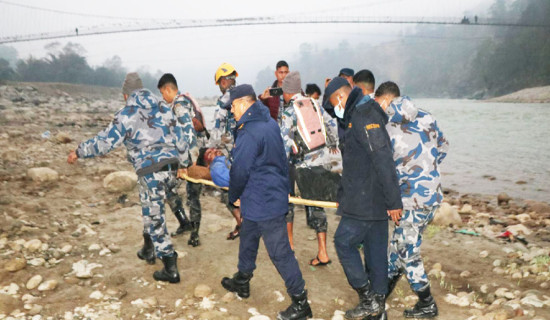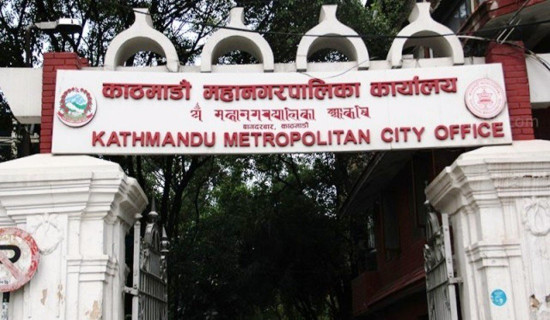- Monday, 23 February 2026
Nepal's Climate Concerns
United Nations General Assembly (UNGA) has provided a platform for Nepal to put forward countries' priorities and seek support and evaluation in different fields. Nepal has participated in the much-anticipated 79th session of the UNGA. Prime Minister KP Sharma Oli held a meeting with the Secretary-General of the United Nations, António Guterres at the UN headquarters in New York on Saturday. Climate change issues and challenges faced by mountainous countries like Nepal were in the highlight of the discussion.
Extreme weather events induced by global warming and climate change have become the new normal for Nepal which is least responsible for greenhouse gas emissions. Thus it is imperative to duly compensate these countries to make them capable to deal with the adverse impacts. Secretary General Guterres affirmed that the agenda of climate change is a priority of the United Nations including the drastic reduction of greenhouse gas emissions and addressing the grievances faced by vulnerable mountainous countries like Nepal.
It's a matter of hope and pride for Nepal that the UN chief expressed his commitment to lobby with the international community for compensating Nepal for the impact it has been facing including the melting of its glaciers and ice sheets due to rising temperature. In this regard, the meeting in the UN headquarters between Prime Minister Oli and Guterres is relevant as it gives hope and optimism to tackle climate induced disasters that we are facing.
Global warming has threatened the fragile ecosystem of the mountainous regions and communities dependent on mountains and mountain resources for their subsistence. The indigenous communities are already facing the danger of being displaced. So Nepal needs financial assistance from the global climate fund and loss and damage mechanism to combat the climate crisis it has been facing. Global warming and Climate change have taken a toll on agricultural yields, food production, ecosystems, freshwater supply, health, livelihood of the people and the economy. Nepal has witnessed changes in precipitation patterns. Floods and inundation, induced by high precipitation over a short period, have taken a toll on lives and property.
Likewise, glaciers in the Himalayan mountains are melting at an alarming rate and glacial lakes are being formed. These lakes are in danger of bursting at any unexpected hour when the water volume is high. That can cause massive devastations. Nepal recently witnessed a glacial lake outburst flood in Thame of Solukhumbu district. It caused a lot of physical damage in the area. This can be a warning for similar disastrous events in the future.
PM Oli thanked the Secretary General Guterres for raising the issue of climate change impacts in Nepal at the global level and advocating for support to tackle them. Nepal's share in greenhouse gas emissions is negligible, but it has already started bearing the brunt of global warming and climate change. Thus global commitment is essential to mitigate the climate crisis. Climate finance should be adequate for developing countries including the least developed Countries (LDC) to focus on adaptation measures.
As Nepal is committed to graduating from the LDC category and achieving Sustainable Development Goals, the PM urged development partners and the international community to enhance the development assistance to Nepal. Addressing climate problems is essential for achieving Sustainable Development Goals as these issues are interconnected with each other. Thus PM Oli's emphasis on climate issues at the global forum is crucial.

















